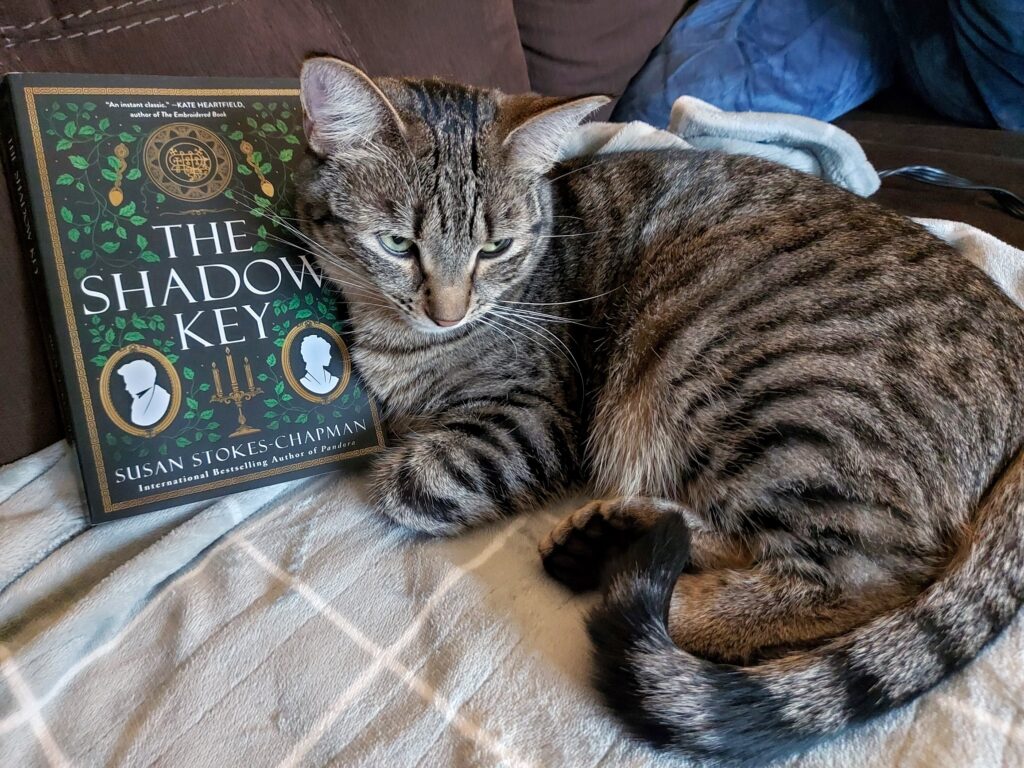The Shadow Key by Susan Stokes-Chapman

I wanted to read The Shadow Key for a few reasons: 1) It is historical fiction 2) It is a gothic story 3) It is also a mystery 4) It is set in Wales. I ended up really enjoying it. It is predictable, but it still managed to surprise me. It straddles the line between realism and the supernatural without tipping over definitively into either side. I think readers who typically avoid reading supernatural stories may enjoy this one.
The Shadow Key is set in 1783 and is about a young doctor named Henry Talbot who loses his job at a prestigious London hospital and is forced to accept a new job as a private physician from Lord Julian Tresilian, a seemingly affable man who collects obscure texts on subjects such as alchemy. Henry’s new job requires him to relocate to a remote estate in rural Wales called Plas Helyg. Upon his arrival, it becomes immediately clear that Henry is not welcome at Plas Helyg: the gatehouse where he is supposed to live has been destroyed before he has a chance to move in, and someone takes a shot at him in the woods. The villagers are hostile towards him, not only because he is English, but because they are superstitious and believe in myths and magic and do not trust his modern medical practices. When Henry realizes that Plas Helyg’s previous physician may have been murdered, he decides to investigate the murder with the help of the mistress of Plas Helyg and Julian’s cousin, Linette.
Linette is unlike other young ladies in her position: she prefers to wear men’s clothing; she has no desire to marry; and she takes a great interest in the welfare of the people who live and work on her estate. She and Henry immediately butt heads as they are both headstrong people with conflicting beliefs, but her attitude softens towards him when she sees how gently he treats her mother, who has become a recluse since Linette’s father died when she was just a baby.
Henry, for his part, proves to be a tolerant person despite the hostility he experiences from the villagers. However, he is just like any other heterosexual male who loses all common sense when faced with a beautiful woman, in his case the village herbalist, which of course leads to a love triangle with Linette. Stokes-Chapman at least throws one interesting wrench into this common literary trope.
As easy as it is to figure out the mysterious goings-on at Plas Helyg, The Shadow Key is still an interesting story, with my favourite aspect of the story being the setting. Stokes-Chapman creates a vivid picture of the wild Welsh landscape, alternating between lush beauty and wet, muddy dreariness. She evokes a hopeless sense of isolation, not just with Plas Helyg’s literal distance from the rest of civilization, but with Henry and Linette’s realization of how on their own they truly are as they investigate the murder. Stokes-Chapman also weaves Welsh mythology and history into her novel, not only for the novel’s supernatural elements, but to allow the reader to better understand native Welsh people and their relationship with the English. I definitely recommend giving this novel a try; you might be surprised at how much you like it.